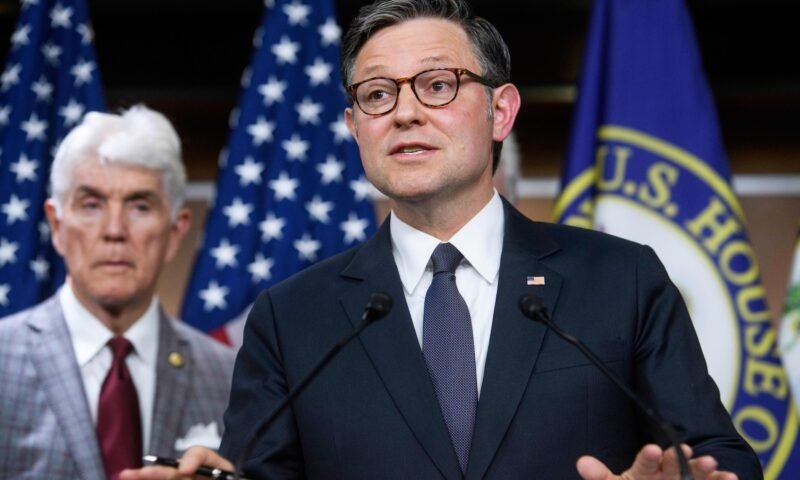

At a glance
It seems more likely that we will see a government shutdown on October 1st. It’s clear that our government is poorly run, but what does that mean for you and your student loans?
There have been 20 “funding gaps” and four complete government shutdowns in the past 50 years. The last shutdowns occurred in December 2018 and January 2019. But the threat of a shutdown seems to loom at every budget cycle.
Well, it really depends on what’s going on. For short government shutdowns (which may last a weekend or a few days a week), nothing. For longer shutdowns (as we saw in 2013 or 2018), all the good things our government does stop — like national parks, military death benefits, etc. — but all the “bad things” our government does, like collecting taxes, handling student loans, continue.
In reality, The Department of Education has a detailed contingency plan for the government shutdown (PDF file) Because it happens. This has just been released as of September 28, 2025.
As of now, the last day the government will be funded is September 30, 2025. So the soonest the government will shut down is October 1, 2025. As of today, it looks like this might happen.
If you are curious aboutHow the government shutdown will affect your investments, see this article. However, one area that has not been discussed at length is the impact this closure will have on your student loans.
Editor’s note:Updated to reflect the 2025 contingency plan.
Would you like to save this?
Student loan repayment
Whether the government shuts down or not It does not change the fact that your student loan payments are due.
Your student loans are processed by your loan servicer (such as MOHELA, Aidvantage, EdFinancial, NelNet). These companies already have connections that have been earmarked and are not dependent on congressional funding measures. As such, they will continue to function normally (whether you appreciate it or not).
⚠︎ Save the administrative tolerance plan
If you are currently on administrative exemption due to ongoing SAVE Plan litigation, you will not have to resume payments as long as you are on exemption – which we are seeing extended. Monitor notifications from your loan servicer for updates.
Unless it is affected
The good news is that the shutdown likely will not affect your eligibility to qualify for any new federal financial aid. This may include any Federal Pell Grant, FSEOG, or Direct Student Loans. This specific amount of money is still flowing in because it is based on current approved funding. Your FAFSA will continue to be processed, and nearly all Department of Education financial aid sites will remain operational.
More good news (well… “good” is a relative term here) is that federal student loan servicers are still up and running. So you can still make all of your student loan payments and receive customer service if you have questions.
Loan servicers also handle IDR requests – so if you need to change your repayment plan (such as leaving a forbearance period), this will still be processed.
Since 2009, the Department of Education has contracted with private loan servicing companies to manage repayment of most federal student loans, and since these private companies do not specifically fall under the wings of the federal government, it is still business as usual. So, yes, your student loan payments are Still worthy.
“Yes, your student loan payments are still due.”
Since contracted student loan servicers are still operating, this means you can still apply for deferment or forgiveness. These contractors have the authority to approve these options, so they can still help you with this. They can also help you change your student loan repayment plan, discuss loan forgiveness options, and work through processing PSLF ECFs.
However, some of these contractors’ back-end support may be affected by the shutdown, resulting in delayed customer service issues.
The key is that the distribution of existing and new loans, and the maintenance of loan servicing, will continue.
If you are applying for loan forgiveness due to a medical disability or… Student loan forgiveness Since you teach in a critical needs area, you’re out of luck. You will hit a brick wall until the government gets back to work. Please see below for the bad news.
The bad news: What will be affected?
While financial aid is still flowing, there are some things that will be halted until the government gets back to work. Specifically, anything that requires a direct DOE employee (as opposed to servicing loans) will likely be suspended.
The current contingency plan says approximately 87% of Education Department staff will be furloughed in the first week. This means that delays will inevitably occur for anything that requires FSA ED staff. This equates to only 330 people working out of 2,447 people.
The only excluded employees are information technology, finance, law enforcement and fraud protection employees – along with a minor staff of individuals in the Federal Student Aid Program.
Consolidated loan applications will be suspended. If you have a pending loan consolidation request through MOHELA or any other service, it will likely not be completed. If you reach 120 PSLF payments, this will also pause. However, the impact may be small since it usually takes 30 to 60 days to process final approvals anyway after reaching 120 days.
the reason? The Department of Education handles some of the logistics of loan consolidation and gives final approval to loan forgiveness requests.
If you have specific questions about your federal financial aid, you won’t be able to get any customer service through the Department of Education. The Ombudsman Office is also closed, so if you have a complaint or grievance, you will have to wait until it opens again to file this. However, just because the federal government shuts down, your state may have an ombudsman who can help.
More bad news is that Overdue loans They are still reported to credit bureaus and loans can still be turned over to student loan collection agencies. Credit bureaus are independent agencies and are not affected by the government shutdown.
Potential future issues with the FAFSA
If the government shutdown lasts more than a few days, it could also affect the FAFSA. While much of the FAFSA processing is automated, employees are involved in resolving issues.
Moreover, FAFSA Customer Service Center It is also possible that the service will be closed if the government closes its doors, so any families with support needs may not get answers.
The same applies to colleges. If any colleges need support on issues, they will have to wait as well – which can lead to a backlog.
This will also be exacerbated by layoffs affecting the Department of Education.
Why should you care?
Unfortunately, the longer this government shutdown lasts, the larger the backlog will grow. When federal employees return, they will face an almost insurmountable obstacle. Piles of paperwork and backlogs are likely to be crippling. If this closure continues for an extended period, it could impact the availability of financial aid next year.
The Department of Education is already facing huge IDR demand and a PSLF repo backlog. This will only make matters worse.
Now is the time to contact your Congressman and express your concern if you rely on any of these services.
Frequently asked questions about government shutdowns and student loans
Will I still have to make payments on my student loan during the closure?
Yes. Loan providers such as MOHELA, Aidvantage, and NelNet are private contractors that are funded outside of annual appropriations. Your payments are still due even if Department of Education employees are furloughed.
What happens to Pell Grants and Direct Loans during the shutdown?
Pell Grants and federal direct student loans persist because they are funded through mandatory and advance appropriations. However, if the closure period is extended, students and schools may experience delays due to the limited number of administration staff.
Will Public Service Loan Forgiveness (PSLF) applications be processed?
PSLF Employment Certification forms will continue to be processed (as this is handled by the contractor), but actual relief for borrowers up to 120 qualifying payments will be discontinued as this requires approval by an actual ED employee.
Will FAFSA processing stop?
no. FAFSA applications continue to be accepted and processed by automated systems. But with most department staff furloughed, students may face backlogs, slow problem-solving, and limited support.
What happens to the Office of the Federal Student Aid Ombudsman?
The Office of the Ombudsman, which handles borrower disputes, is closed during the government shutdown. Borrowers will not be able to escalate complaints until normal operations resume.
Will the lockdown affect colleges and schools?
Not directly. While basic student aid continues, federal funding for colleges, universities, vocational rehabilitation agencies, and K-12 districts may be delayed. Institutions that rely heavily on federal funds may experience cash flow disruptions.
Is my loan information safe during shutdown?
Yes. Cybersecurity, fraud monitoring, and other activities needed to protect federal systems and property continue to operate during the government shutdown.
What if the lockdown lasts more than a week?
The Department of Education is adjusting staffing as needed, but prolonged closures increase the risk of delays in loan disbursement, FAFSA processing, and institutional funding.
More stories:
How will the government shutdown affect your investments?
2026 – 2027 Student Aid Index (SAI) chart and calculator.
$5,250 of employer loan assistance for students is tax deductible
Editor: Colin Greaves
The article Government Shutdown and Student Loans Explained (2025 Update) was first published on The College Investor.





